Uxolo was established to bridge the gap between private capital providers, Development Finance Institutions (DFIs), and governments seeking to invest in development finance projects. We offer you the latest news, data, research, and impact focussed events!

Navigating through the development finance ecosystem is a challenge to say the least. Development projects and initiatives are owned by different governments and stakeholders, with differing strategies and cultures. Some have said development institutions are not able to crowd in private capital or tackle modern challenges. They operate in a complex manner and simplification would speed up execution. But shouldn't multilateral development banks (MDBs) be expected to deliberate over vast amounts of investment capital? More attention should be directed at supporting bilateral and local development finance institutions and not just coercing MDBs to spend money fast! Hear how our industry leaders are responding to what's going on the market.
Which sectors, regions and countries are our DFIs currently looking at?
What are the key challenges and priorities that DFIs face when securing financing for key projects?
How can the development industry support bilateral and local DFIs?
How can DFIs work with the private sector to mobilise capital where its needed most?





Directing foreign investment into emerging markets is a complex endeavour. Governments desire investment and enact policies to reel foreign investors in. But like all partnerships, they involve give and take. Emerging markets risk losing control of their economies if capital controls are inadequate. On the contrary, investors flee from emerging markets if capital controls are too tight! Most fundamentally, investors retreat from emerging markets through real or perceived political instability. Western investors want functioning legal systems, accountability, transparency and speed of execution. But there must be political will to facilitate change. To promote investment, developing countries must develop capital markets, hedge risks and provide liquid instruments to assist projects. But these market developments can occur amidst dissent. Local citizens must not feel disenfranchised from ongoing developments otherwise they are unlikely to support their own governments long enough for investments to generate returns.
Examining the data and changing the perceptions of risky markets
Create incentives for Blended Finance and Public Private Partnerships
Increasing transparency, accountability and the speed of execution
Ensuring that local citizens are stakeholders of development projects


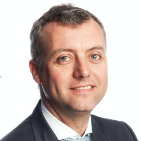

Stop for a short break! Mix and mingle with industry leaders and practitioners
Complementarities and coordination are relevant concepts in development economics, which applied to development finance indicate, among other matters, that in order to achieve maximum development effectiveness (i) both the public and private sectors need to be attended, (ii) both sectors need to work co-ordinately and achieve complementarities, and (iii) sources of public and private capital need to be deployed. The public and private sectors working in silos is inefficient and namely ineffective, and lack of coordination may result in inaction. In addition, with an estimated annual shortfall of over US$ 4 trillion to achieve the 2030 Agenda, the effective use of public capital is fundamental to mobilise the volumes of private capital that are necessary to reduce such gap. This session will reconsider public-private sector complementarities and coordination with a focus on:
*Applying blended finance, i.e., the use of catalytic capital from public sources to increase private sector investment in the SDGs.
*The use of specific structures, instruments, partnerships and platforms that facilitate mobilising private capital to key developmental areas, namely infrastructure and social ventures, throughout life cycles.
*Fruitful approaches to Public-Private-Partnerships (PPP) in infrastructure projects and leveraging private sector innovation for more effective delivery of public services.
*Creative financing solutions for infrastructure projects and delivery of public services that can be achieved by working together with diverse sources of financing (e.g. DFIs, private capital, ECAs).
*How public and private sectors add value through project lifecycle: screening & feasibility, development, structuring & financing, construction, and asset management.
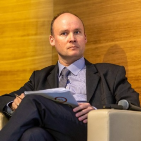



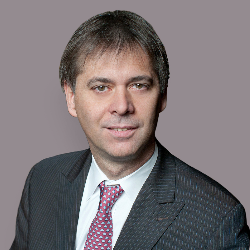
The UK government’s MOBILIST programme has curated a panel that blends private sector investors and fund managers with leading European DFI representatives and MOBILIST representatives. The panel will discuss new financial approaches for recycling and redirecting DFI capital through innovative partnerships with public market actors. Industry delegates will hear:
Experts discuss pioneering pathways for DFIs and MDBs to mobilise capital through sustainable exits to private sector investors
The potential of public markets in unlocking development finance and commercial returns
The benefits of specific listed and public market structures in helping DFIs and MDBs raise capital and investment
How public market actors, DFIs and MDBs can partner to leverage underexploited emerging and frontier market listen market opportunities



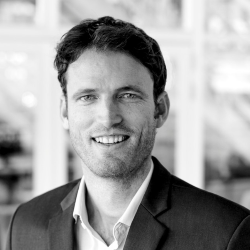

In the face of the current global energy crisis the green energy transition has become even more complicated. How should climate finance, and blended finance, be deployed in this situation? How can technology transfer be ensured? What are the best ways to ensure private sector mobilisation for climate action? Some industry leaders have stated that the transition must be a "just transition." What does this mean and how can collaboration of Development Finance Institutions (DFIs) and the private sector enable and smoothen this bumpy transition?

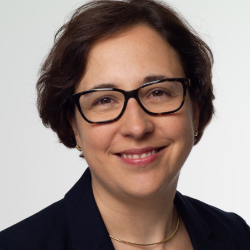


Environmental and Social Governance (ESG) is a complex topic. There is little consensus on what the term really means! This has led to a lack of coherence in ESG projects. In Europe there have been efforts to formulate taxonomies. These efforts should quite rightly continue and even incorporate measures such as carbon accounting. Aside from moral questions regarding the universalization of European standards upon developing countries, there are yet other pitfalls. Any imposition of rigid impact metrics upon emerging markets is unfair and unrealistic especially in the near future. Despite this, steps must be taken forward and expanded into impact finance ensuring that environmental, socioeconomic equality is measurable in the long run. This discussion will consider how to universalise a standardised ESG taxonomy in a progressive fashion.
Defining
realistic benchmarks and committing to ESG goals
Which kinds of tools are available to measure ESG performance?
How can we alter the perverse incentives for greenwashing?
What can be done when falling short of ESG targets?




We invite the leading deal makers of development finance to give you key takeaway points!
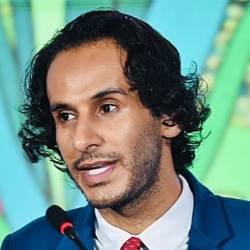

Every debt crisis results in severe restrictions on investment in infrastructure, education and healthcare and brings lasting setbacks on the growth of impacted countries. Developing markets have wrestled with the three C's, COVID, Climate and Conflict! The triple whammy has placed cumulative burdens on governments which increases the relevance of debt sustainability. As COVID ravaged through the year 2021, developing country external debt stocks reached $11.1 trillion, which is more than double the amount of the $4.1 trillion debt registered in 2009. The tyrannous trifecta has pitted the climate agenda against the development agenda, particularly in emerging markets. Ideally, governments shouldn't be faced with a binary choice. This workshop will interrogate how development financiers can provide the much needed support for developing country governments.
Inflation, the rising cost of borrowing and sovereign debt
Rising interest rates and the increasingly expensive import bill
Uncovering the available support for emerging markets under budgetary constraints

Many would agree that capital would not naturally flow towards ethical investment. This evidenced by the continuation of traditional divisions of labour which has perpetuated social inequality in a modern world. Then what is the role of multilateral institutions in ensuring that private capital is directed towards gender, inclusion and equality? Although there is no definitive answer, women play an integral role in global production, including food, goods, services and ranges from work in fields, factories, to managing global corporations. Although women's roles differ considerably across developed and developing markets, exclusion from the ownership of land has hindered the achievement of the sustainable development goals. Evidently, capital must be steered to where it is needed most! This workshop will evaluate the best practices for steering capital towards ethical causes.
Ensuring that investment proposals are explicit about gender and financial inclusion
Which kinds of technical assistance are available to enhance social equality?
Supporting women-led firms and female entrepreneurship
Linking ethical investment performance indicators for long-term change





With food security back on the agenda, agriculture must be boosted to fill the shortfall of Ukrainian imports. Producers and exporters from countries like Brazil and Colombia will need to step in. Increased food production requires more energy, and the region is dependent on fossil fuels. But with boundless sunshine and endless sea breeze, there are openings to seize solar power and grasp the wind! Opportunities exist for investment in agriculture, renewables, infrastructure, digital economy, and regional transportation. How to ensure sustainability and long-term value creation in the face of investment challenges? This workshop will examine how best to mobilise private capital, enhance infrastructure, productivity and food security in the region.
*Initiatives to attract private capital to Latin America and the Caribbean
*How can Development Finance Institutions (DFIs) support agricultural production and SME integration into agricultural value chains?
*Infrastructural investment and regional connectivity through digital infrastructure


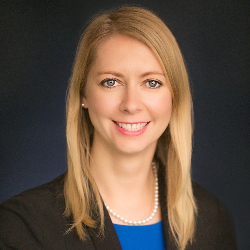
It's been a wonderful journey. Thank you for joining us and remember our name is Uxolo!
The geopolitics around the Russia-Ukraine war have extended way beyond the national borders of these countries. The crisis continues to adversely impact global markets, supply chains, energy prices, commodity prices and food security. High inflation has increased the need for governments to raise interest rates. As central banks continue to increase interest rates, it applies additional pressure on the financing of development projects. It has been logically asserted that the crisis will slow the pace of international development. Within the context of global development, it is relevant to understand how Africa will be affected by the crisis. This presentation will provide Africa's unique experience.
Rising inflation, interest rates and debt sustainability in poor countries and what can be done?
How can we mitigate and manage country risks?
What are the opportunities for new investments in Africa?
Which low income countries will need support over the coming years and how can we assist them?

The geopolitics around the Russia-Ukraine war have extended way beyond the national borders of these countries. The crisis continues to adversely impact global markets, supply chains, energy prices, commodity prices and food security. High inflation has increased the need for governments to raise interest rates. As central banks continue to increase interest rates, it applies additional pressure on the financing of development projects. It has been logically asserted that the crisis will slow the pace of international development. Within the context of global development, it is relevant to understand how Africa will be affected by the crisis. This presentation will provide Africa's unique experience.
Rising inflation, interest rates and debt sustainability in poor countries and what can be done?
How can we mitigate and manage country risks?
What are the opportunities for new investments in Africa?
Which low income countries will need support over the coming years and how can we assist them?

Uxolo was established to bridge the gap between private capital providers, Development Finance Institutions (DFIs), and governments seeking to invest in development finance projects. We offer you the latest news, data, research, and impact focussed events!

Navigating through the development finance ecosystem is a challenge to say the least. Development projects and initiatives are owned by different governments and stakeholders, with differing strategies and cultures. Some have said development institutions are not able to crowd in private capital or tackle modern challenges. They operate in a complex manner and simplification would speed up execution. But shouldn't multilateral development banks (MDBs) be expected to deliberate over vast amounts of investment capital? More attention should be directed at supporting bilateral and local development finance institutions and not just coercing MDBs to spend money fast! Hear how our industry leaders are responding to what's going on the market.
Which sectors, regions and countries are our DFIs currently looking at?
What are the key challenges and priorities that DFIs face when securing financing for key projects?
How can the development industry support bilateral and local DFIs?
How can DFIs work with the private sector to mobilise capital where its needed most?





Directing foreign investment into emerging markets is a complex endeavour. Governments desire investment and enact policies to reel foreign investors in. But like all partnerships, they involve give and take. Emerging markets risk losing control of their economies if capital controls are inadequate. On the contrary, investors flee from emerging markets if capital controls are too tight! Most fundamentally, investors retreat from emerging markets through real or perceived political instability. Western investors want functioning legal systems, accountability, transparency and speed of execution. But there must be political will to facilitate change. To promote investment, developing countries must develop capital markets, hedge risks and provide liquid instruments to assist projects. But these market developments can occur amidst dissent. Local citizens must not feel disenfranchised from ongoing developments otherwise they are unlikely to support their own governments long enough for investments to generate returns.
Examining the data and changing the perceptions of risky markets
Create incentives for Blended Finance and Public Private Partnerships
Increasing transparency, accountability and the speed of execution
Ensuring that local citizens are stakeholders of development projects




Stop for a short break! Mix and mingle with industry leaders and practitioners
Complementarities and coordination are relevant concepts in development economics, which applied to development finance indicate, among other matters, that in order to achieve maximum development effectiveness (i) both the public and private sectors need to be attended, (ii) both sectors need to work co-ordinately and achieve complementarities, and (iii) sources of public and private capital need to be deployed. The public and private sectors working in silos is inefficient and namely ineffective, and lack of coordination may result in inaction. In addition, with an estimated annual shortfall of over US$ 4 trillion to achieve the 2030 Agenda, the effective use of public capital is fundamental to mobilise the volumes of private capital that are necessary to reduce such gap. This session will reconsider public-private sector complementarities and coordination with a focus on:
*Applying blended finance, i.e., the use of catalytic capital from public sources to increase private sector investment in the SDGs.
*The use of specific structures, instruments, partnerships and platforms that facilitate mobilising private capital to key developmental areas, namely infrastructure and social ventures, throughout life cycles.
*Fruitful approaches to Public-Private-Partnerships (PPP) in infrastructure projects and leveraging private sector innovation for more effective delivery of public services.
*Creative financing solutions for infrastructure projects and delivery of public services that can be achieved by working together with diverse sources of financing (e.g. DFIs, private capital, ECAs).
*How public and private sectors add value through project lifecycle: screening & feasibility, development, structuring & financing, construction, and asset management.





The UK government’s MOBILIST programme has curated a panel that blends private sector investors and fund managers with leading European DFI representatives and MOBILIST representatives. The panel will discuss new financial approaches for recycling and redirecting DFI capital through innovative partnerships with public market actors. Industry delegates will hear:
Experts discuss pioneering pathways for DFIs and MDBs to mobilise capital through sustainable exits to private sector investors
The potential of public markets in unlocking development finance and commercial returns
The benefits of specific listed and public market structures in helping DFIs and MDBs raise capital and investment
How public market actors, DFIs and MDBs can partner to leverage underexploited emerging and frontier market listen market opportunities





In the face of the current global energy crisis the green energy transition has become even more complicated. How should climate finance, and blended finance, be deployed in this situation? How can technology transfer be ensured? What are the best ways to ensure private sector mobilisation for climate action? Some industry leaders have stated that the transition must be a "just transition." What does this mean and how can collaboration of Development Finance Institutions (DFIs) and the private sector enable and smoothen this bumpy transition?




Environmental and Social Governance (ESG) is a complex topic. There is little consensus on what the term really means! This has led to a lack of coherence in ESG projects. In Europe there have been efforts to formulate taxonomies. These efforts should quite rightly continue and even incorporate measures such as carbon accounting. Aside from moral questions regarding the universalization of European standards upon developing countries, there are yet other pitfalls. Any imposition of rigid impact metrics upon emerging markets is unfair and unrealistic especially in the near future. Despite this, steps must be taken forward and expanded into impact finance ensuring that environmental, socioeconomic equality is measurable in the long run. This discussion will consider how to universalise a standardised ESG taxonomy in a progressive fashion.
Defining
realistic benchmarks and committing to ESG goals
Which kinds of tools are available to measure ESG performance?
How can we alter the perverse incentives for greenwashing?
What can be done when falling short of ESG targets?




We invite the leading deal makers of development finance to give you key takeaway points!


Every debt crisis results in severe restrictions on investment in infrastructure, education and healthcare and brings lasting setbacks on the growth of impacted countries. Developing markets have wrestled with the three C's, COVID, Climate and Conflict! The triple whammy has placed cumulative burdens on governments which increases the relevance of debt sustainability. As COVID ravaged through the year 2021, developing country external debt stocks reached $11.1 trillion, which is more than double the amount of the $4.1 trillion debt registered in 2009. The tyrannous trifecta has pitted the climate agenda against the development agenda, particularly in emerging markets. Ideally, governments shouldn't be faced with a binary choice. This workshop will interrogate how development financiers can provide the much needed support for developing country governments.
Inflation, the rising cost of borrowing and sovereign debt
Rising interest rates and the increasingly expensive import bill
Uncovering the available support for emerging markets under budgetary constraints

Many would agree that capital would not naturally flow towards ethical investment. This evidenced by the continuation of traditional divisions of labour which has perpetuated social inequality in a modern world. Then what is the role of multilateral institutions in ensuring that private capital is directed towards gender, inclusion and equality? Although there is no definitive answer, women play an integral role in global production, including food, goods, services and ranges from work in fields, factories, to managing global corporations. Although women's roles differ considerably across developed and developing markets, exclusion from the ownership of land has hindered the achievement of the sustainable development goals. Evidently, capital must be steered to where it is needed most! This workshop will evaluate the best practices for steering capital towards ethical causes.
Ensuring that investment proposals are explicit about gender and financial inclusion
Which kinds of technical assistance are available to enhance social equality?
Supporting women-led firms and female entrepreneurship
Linking ethical investment performance indicators for long-term change





With food security back on the agenda, agriculture must be boosted to fill the shortfall of Ukrainian imports. Producers and exporters from countries like Brazil and Colombia will need to step in. Increased food production requires more energy, and the region is dependent on fossil fuels. But with boundless sunshine and endless sea breeze, there are openings to seize solar power and grasp the wind! Opportunities exist for investment in agriculture, renewables, infrastructure, digital economy, and regional transportation. How to ensure sustainability and long-term value creation in the face of investment challenges? This workshop will examine how best to mobilise private capital, enhance infrastructure, productivity and food security in the region.
*Initiatives to attract private capital to Latin America and the Caribbean
*How can Development Finance Institutions (DFIs) support agricultural production and SME integration into agricultural value chains?
*Infrastructural investment and regional connectivity through digital infrastructure



It's been a wonderful journey. Thank you for joining us and remember our name is Uxolo!